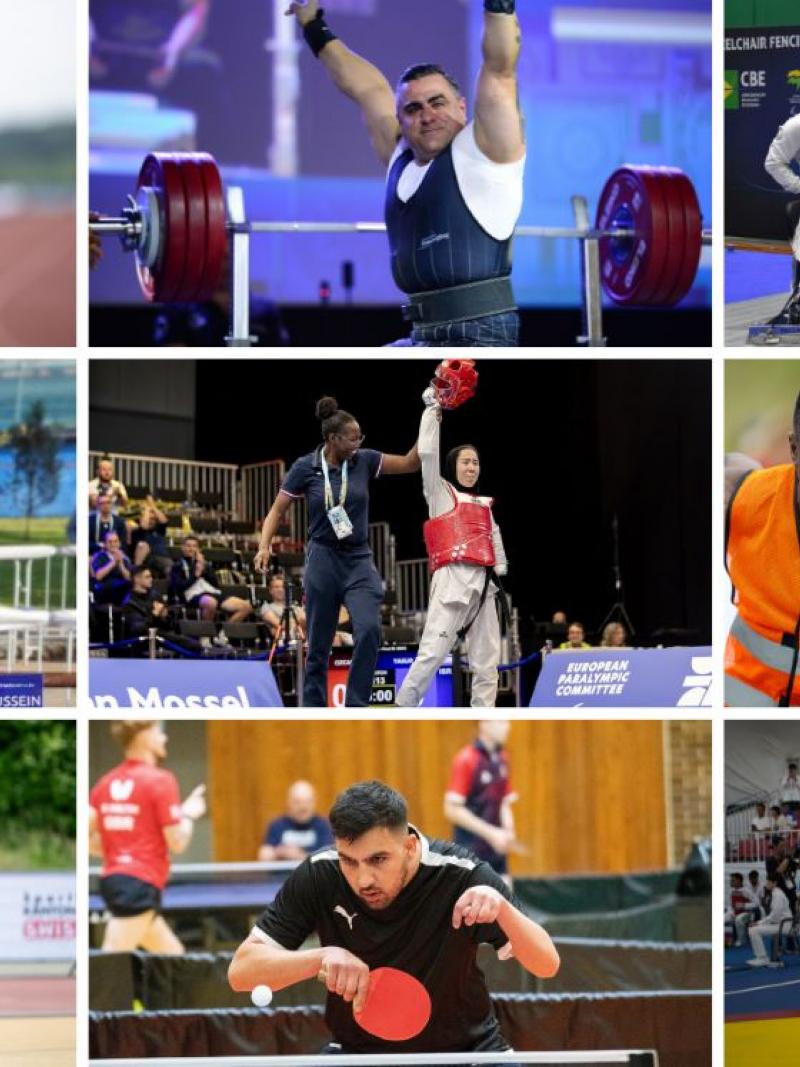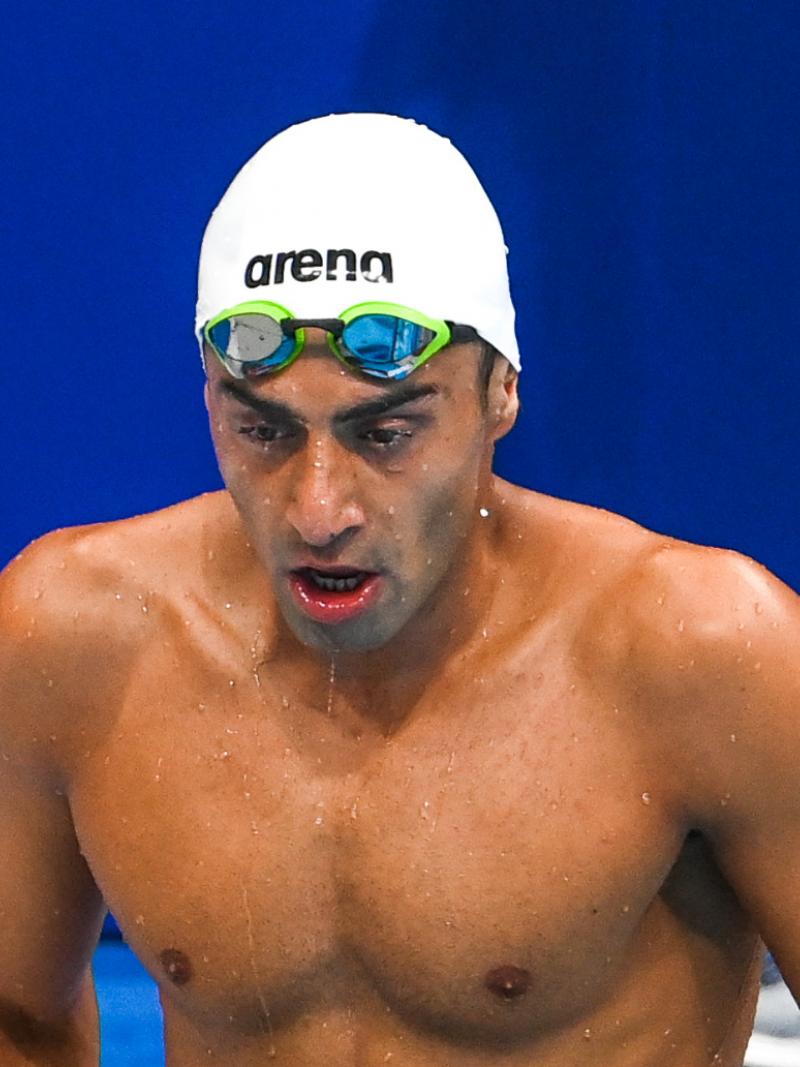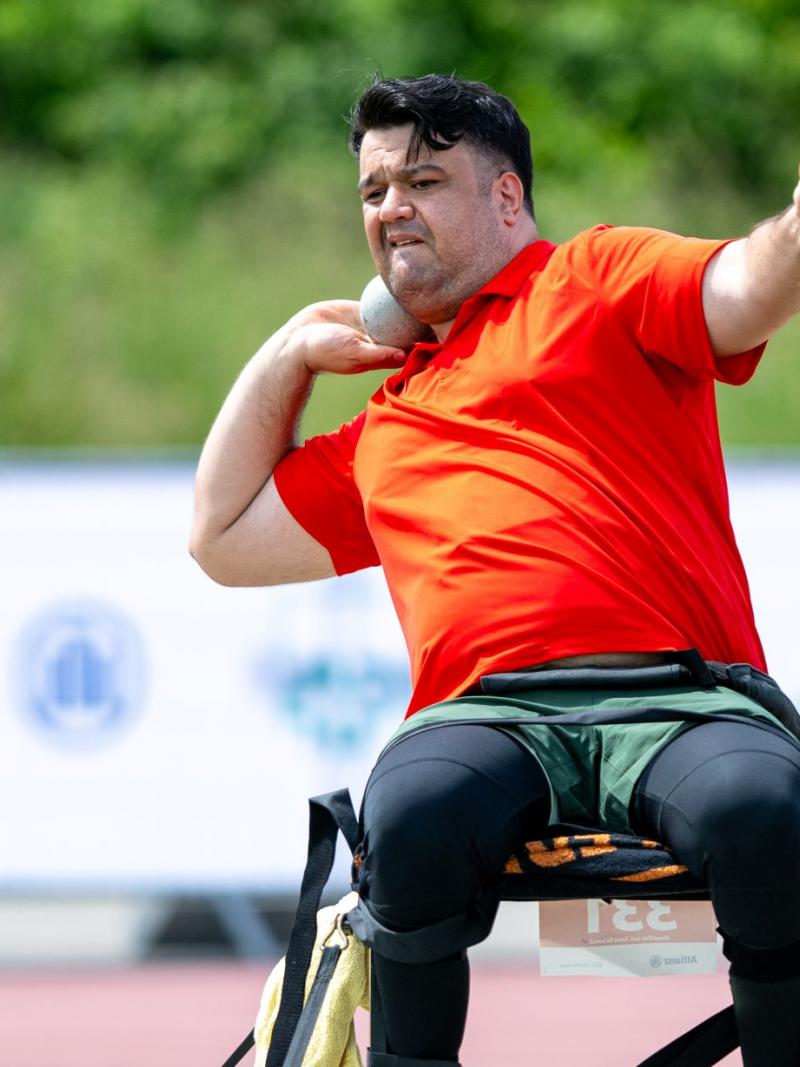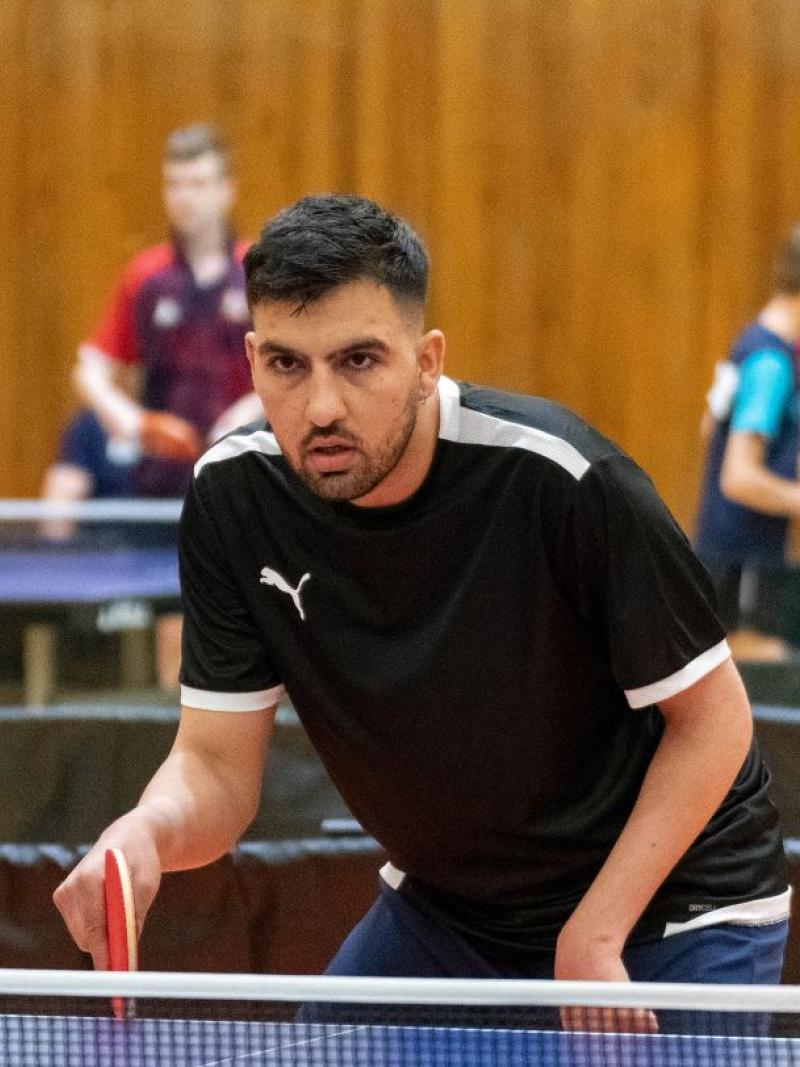Q&A with Refugee Paralympic Team athlete Guillaume Junior Atangana
Guillaume Junior Atangana will compete in Para athletics as a member of the largest-ever Refugee Paralympic Team The Q&As have been edited for length and clarity 09 Jul 2024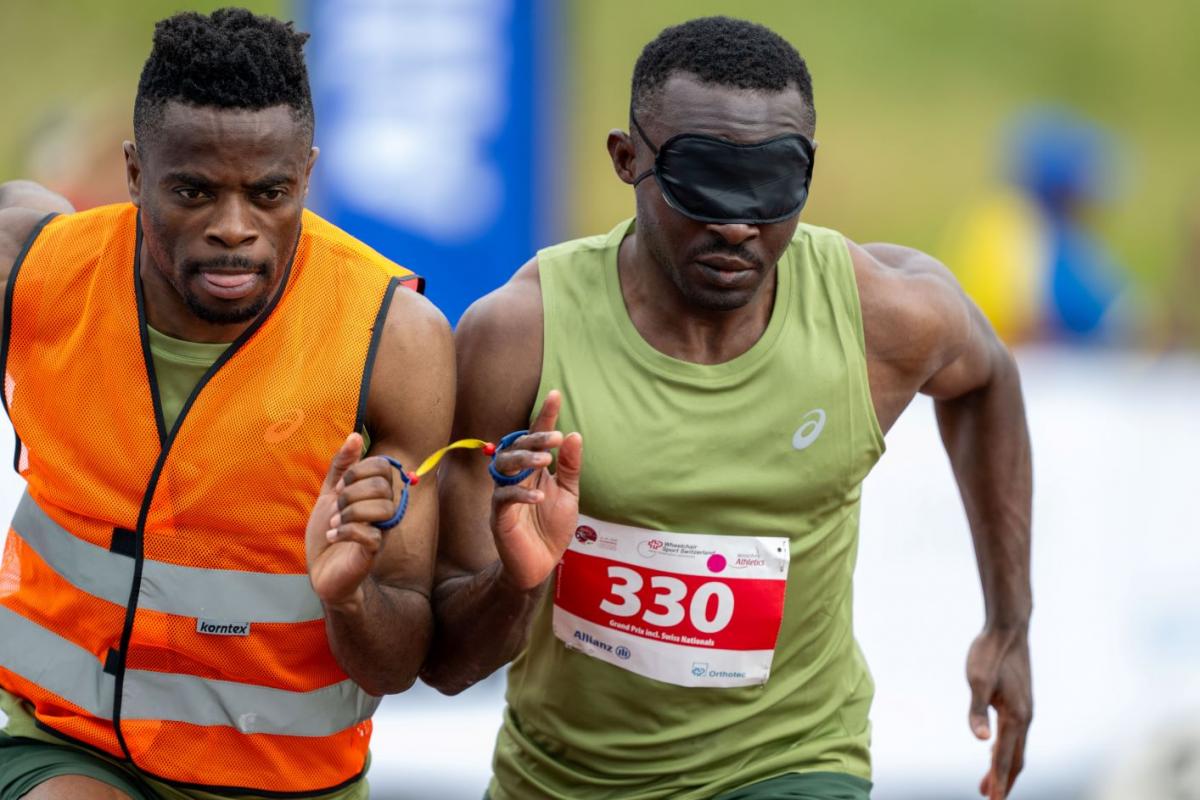
1. Tell us a little bit about your story?
I am a Paralympic athlete and I have been running since I lost my eyesight. I represented Cameroon at the Tokyo 2020 Paralympic Games and currently I am on the Refugee Paralympic Team. My hope for the Paris 2024 Paralympics is to win a gold medal.
2. What are some of the biggest challenges that you’ve faced on your journey to Paris?
My biggest challenge was to qualify for the Paris 2024 Paralympic Games. It was tough when I was trying to train with my guide, who was injured, and we had to adapt our training sessions. It wasn’t easy. But by the grace of God and the support of our club, we have arrived.
3. Can you share any personal stories that highlight how much you have had to overcome and how you did that?
I remember very well the early days when we arrived in England. We had to adapt a lot of things to fit in our training – especially with the colder climate, which wasn’t favourable to us. We didn't have a lot of support at first. We didn't know anyone; we were in limbo without our papers. Yet, my <running> guide and I remained focused on our training. We had the big picture in mind, hoping to qualify for Paris 2024 - and the Lord has given us that now.
4. How did you get involved in sport?
I got involved in sport through national competitions in my country. Originally, I wanted to be a great footballer. But with my disability, I focused on running since I could no longer follow my dream of being a football player.
5. What is your biggest sporting achievement to date?
My greatest sporting success to date came at the World Para Athletics Grand Prix in Marrakech in 2017 where I won two gold medals. Another big highlight was my participation in the Tokyo 2020 Games which gave me international exposure.
6. Was there one big moment that has been a turning point in your life?
The biggest moment in my life was when I realised I could continue in sport. When I lost my eyesight, I thought that without sport, my life was over. That’s why the day I realised I could continue was a very big day for me. I realised I had to keep doing what I love, and that was the start of becoming a great champion.
7. What was the biggest lesson you learned on your journey?
My biggest lesson is just to always be patient, to trust your talent, work hard, and be disciplined. Hard work always pays off.
8. What does it mean for you to be on the Refugee Paralympic Team?
For me, being on the Refugee Paralympic Team is an incredible opportunity. Many people wanted to be on the team. So, I have had to pull out all the stops to be the best.
9. What are your hopes for Paris?
In Paris, I hope to be at my best, to entertain the public and to show everyone what I am capable of on the track. Hopefully, that will be enough for me to make it onto the podium.
10. What is the message you are hoping to send to others?
The message I hope to share with everyone is to trust in yourself and never give up. I want to show the world that being blind doesn’t mean your life is over. You can still do great things.
11. What has sport meant to you and your life?
Before I couldn't move well on my own but now with my white cane, I can get around freely. I feel good, and sport has really helped with my rehabilitation.
I love sport – it is my passion. Sport has allowed me to blossom. I am most at home when I am doing sport. I couldn’t see myself living without it.





